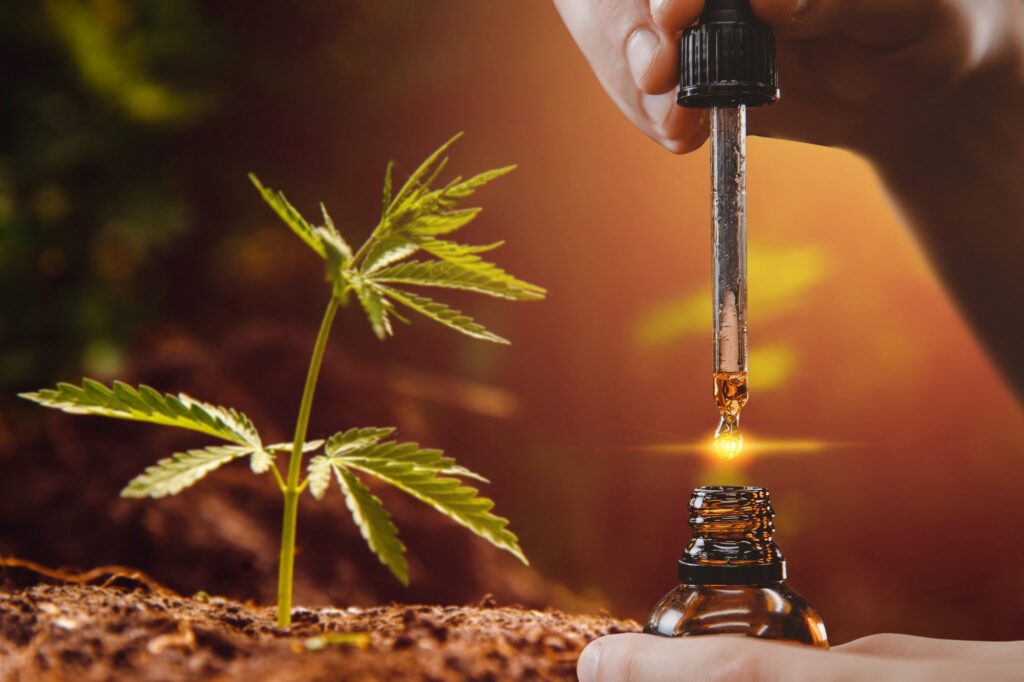Medical marijuana has made waves in the world of healthcare, particularly for individuals suffering from chronic pain. As its popularity increases, there are still many misconceptions and misunderstandings about its effectiveness, risks, and therapeutic potential. In this article, we will explore the truth behind medical marijuana, focusing on its growing use for pain management, the science that supports its benefits, and the transformative impact it can have on individuals suffering from chronic pain. We’ll also debunk some of the myths that still persist.
Introduction to Chronic Pain
Chronic pain is a condition that affects millions of people worldwide. It is generally defined as pain that persists for three months or longer, often continuing long after an injury or illness has healed. Unlike acute pain, which serves as a warning system to protect the body, chronic pain doesn’t necessarily have an identifiable cause and can often seem like a never-ending struggle.
See more: Philips SimplyGo vs Inogen One: Comparing Portable Oxygen Machines
Conditions that commonly lead to chronic pain include:
- Arthritis: Joint inflammation causing pain and stiffness.
- Fibromyalgia: A disorder causing widespread muscle pain, fatigue, and other symptoms.
- Neuropathy: Nerve damage that leads to burning, shooting, or tingling pain.
- Back pain: Often caused by herniated discs, muscle strain, or other spinal issues.
- Migraines: Intense headaches often accompanied by nausea and light sensitivity.
For many people, chronic pain can significantly impair daily life, affecting mobility, mood, and overall quality of life. The treatment options for chronic pain are diverse, but many people find that traditional painkillers, especially opioids, come with unwanted side effects and risks of dependence.
Overview of Medical Marijuana for Pain Management
Medical marijuana refers to the use of cannabis and its extracts as a therapeutic treatment for various health conditions. Unlike recreational marijuana, which is used primarily for its psychoactive effects, medical marijuana is used to alleviate symptoms such as pain, inflammation, anxiety, and sleep disturbances. The two main components of cannabis that have therapeutic benefits are tetrahydrocannabinol (THC) and cannabidiol (CBD).
- THC: This is the psychoactive compound in marijuana, which produces the “high” associated with recreational use. However, THC also has significant pain-relieving and anti-inflammatory properties that can help alleviate chronic pain.
- CBD: Unlike THC, CBD is non-psychoactive. It doesn’t produce a high but has strong anti-inflammatory, analgesic (pain-relieving), and neuroprotective properties, making it particularly useful for managing chronic pain and inflammation.
Medical marijuana works by interacting with the endocannabinoid system (ECS), a complex network of receptors throughout the body that help regulate a variety of functions, including pain, mood, appetite, and immune responses. Cannabinoids like THC and CBD bind to receptors in the ECS, influencing pain perception, reducing inflammation, and promoting a sense of well-being.
Debunking Myths About Medical Marijuana
Despite the growing body of evidence supporting the effectiveness of medical marijuana, many myths and misconceptions still exist. Let’s tackle some of the most common:
Myth #1: Medical marijuana is just for getting “high”
While it’s true that THC can produce a euphoric high, medical marijuana doesn’t just serve recreational purposes. The cannabis plant has many compounds that are beneficial for medical use, particularly CBD, which has no psychoactive effects. The therapeutic use of cannabis focuses on alleviating symptoms, particularly pain, and does not necessarily involve the high.
Myth #2: Medical marijuana is addictive
Unlike opioids and other addictive substances, cannabis has a much lower risk of dependence. While it’s possible to develop a psychological dependence on marijuana, physical addiction is rare. Moreover, medical marijuana has a much lower risk of overdose compared to traditional painkillers, such as opioids, which carry a high risk of addiction, overdose, and even death.

Myth #3: There’s not enough scientific evidence supporting medical marijuana
This is perhaps one of the most common misconceptions. In reality, there is an increasing body of evidence from both clinical trials and patient experiences supporting the efficacy of medical marijuana in managing chronic pain. Studies have shown that cannabis can significantly reduce pain, improve quality of life, and even help people reduce their dependence on opioids.
Scientific Evidence and Research on Medical Marijuana for Pain Management
Research into medical marijuana for pain management has grown substantially over the last few years. A number of studies have confirmed its therapeutic potential:
- A 2015 study published in the Journal of Pain found that cannabis was associated with a significant reduction in pain, particularly for patients with neuropathic pain, multiple sclerosis, and arthritis.
- A 2018 systematic review published in JAMA concluded that cannabis use was effective in reducing chronic pain, particularly in patients with conditions like cancer and fibromyalgia.
- A 2020 meta-analysis published in Frontiers in Pharmacology reviewed 25 clinical trials and found that cannabinoids reduced pain and improved sleep quality in patients with various chronic pain conditions.
These studies highlight that cannabis, particularly CBD and THC, offers a reliable, natural solution for managing pain, with fewer risks and side effects compared to traditional medications.
Benefits of Medical Marijuana Over Traditional Painkillers
One of the biggest concerns with conventional painkillers, especially opioids, is the risk of addiction and overdose. Opioids are highly effective at reducing pain but come with a host of dangers, including dependency, tolerance, and fatal overdose. The opioid epidemic has raised serious concerns about the over-prescription and misuse of these drugs.
Medical marijuana presents a safer alternative. Unlike opioids, cannabis has a much lower risk of addiction and is non-lethal in overdose situations. Moreover, medical marijuana can address the root causes of pain, such as inflammation and nerve damage, while avoiding the negative side effects of opioids, like nausea, constipation, and cognitive impairment.
In addition, cannabis can be a valuable tool for opioid reduction. Many chronic pain patients have successfully used medical marijuana to reduce or even eliminate their opioid use, significantly lowering their risk of opioid-related harms.
Patient Experiences and Testimonials
Patient stories highlight the transformative power of medical marijuana for chronic pain management. These personal accounts demonstrate how cannabis has helped many people regain control over their lives.
- Sarah’s Story: After years of struggling with fibromyalgia and a dependence on opioids, Sarah turned to medical marijuana. “It changed my life,” she says. “With the right dosage of CBD and THC, I’ve been able to manage my pain without the constant fogginess and risks of opioids. I feel more present, and my quality of life has improved dramatically.”
- James’ Journey: As a veteran suffering from chronic back pain due to an old injury, James found relief with medical marijuana. “I was skeptical at first, but after trying it, I’ve been able to reduce my opioid intake. The pain isn’t gone, but it’s more manageable now. I’m living a more functional life.”
These stories reflect the growing movement towards medical marijuana as a legitimate and effective treatment option for chronic pain.
Legal and Accessibility Issues
While medical marijuana is becoming more widely accepted, its legal status varies depending on the country and region. In some places, it’s fully legal, while in others, it remains highly restricted or illegal. Patients looking to use medical marijuana must navigate a patchwork of regulations, including obtaining prescriptions and navigating local laws.
It’s essential for patients to consult with a healthcare provider who is knowledgeable about medical marijuana. A doctor can help determine the appropriate strain, dosage, and form of cannabis based on the patient’s specific condition and needs.
Conclusion: A Transformative Treatment for Chronic Pain
Medical marijuana is transforming the way chronic pain is managed, offering a natural, safer alternative to traditional pain medications. Its therapeutic potential, particularly for conditions like arthritis, neuropathy, and fibromyalgia, is undeniable. As more research emerges and public opinion continues to shift, medical marijuana may become a mainstream treatment for chronic pain and other ailments.
However, it’s important to approach medical marijuana treatment with proper guidance from a healthcare provider. With the right education, patients can safely and effectively incorporate cannabis into their pain management plans, leading to improved quality of life and reduced reliance on addictive medications.
FAQS
Chronic pain is persistent pain that lasts beyond the usual healing period, often caused by conditions like arthritis or nerve damage. It can severely impact daily activities, leading to reduced mobility, mood changes, and a decreased quality of life.
Medical marijuana works by interacting with the body’s endocannabinoid system to reduce pain, inflammation, and muscle spasms. THC and CBD, two key cannabinoids, help alleviate pain and improve overall well-being.
Yes, medical marijuana carries a lower risk of addiction and overdose compared to opioids, making it a safer option for long-term pain management. It provides effective pain relief without the serious risks associated with opioid use.
Medical marijuana can significantly reduce pain and improve quality of life, but it may not completely replace all traditional medications. A healthcare provider can help tailor the treatment plan to each patient’s needs.
Common side effects of medical marijuana include dry mouth, dizziness, and drowsiness. These are usually mild and can be managed by adjusting dosage with the help of a healthcare provider.






